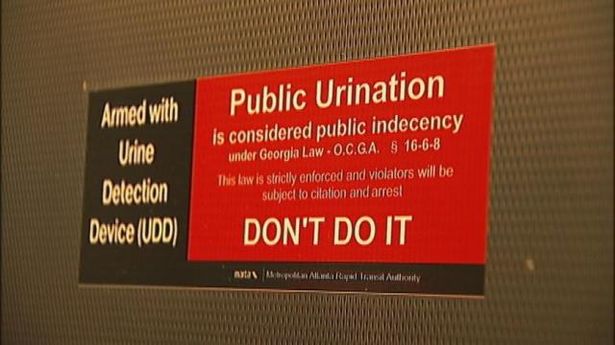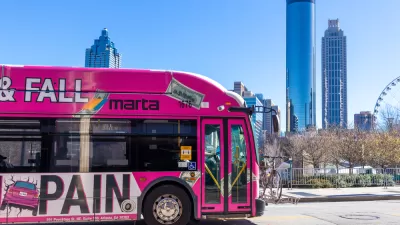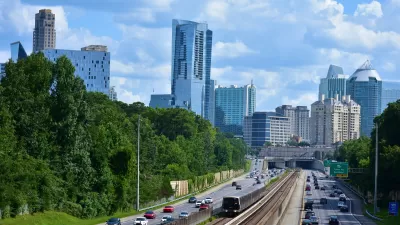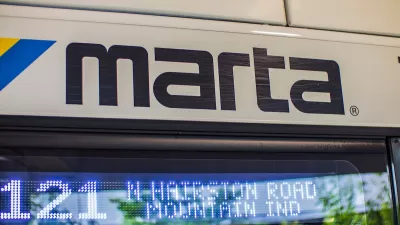This abbreviation may be coming to other transit elevators if it proves its snuff in Atlanta: UDD, short for Urine Detection Device. The sensors and the camera will force offenders to find appropriate places to relieve themselves, or risk arrest.
The good news for users of Atlanta’s transit elevators can’t come soon enough, explains John Bachman of WSB-TV, Atlanta in this newscast about the new program deployed by Metropolitan Atlanta Rapid Transit Authority (MARTA).
The olfactory problem is "about to change with first-of-its-kind technology which catches 'offenders' literally -- with their pants down," he explains in the newscast. It all comes down to the "splash factor".

credit: WSBTV - Atlanta
Standing in an elevator, MARTA Director of Elevators/Escalators Tom Beebe tells Bachman (with a straight face) how UDD works. "If somebody was to urinate in here, there's going to be a splash factor. It would splash and it [camera points to UDD in elevator] would sense," Beebe said.
Bachman explains that “if a person relieves her or himself, the sensors sound the alarm and the MARTA police will be there in seconds to catch the offender in the act.”
The pilot program has been in place for a month, and that daily problem dropped to one incident, in which an arrest was made.
The cost: $10,000 per UDD - which MARTA can probably recoup in reduced maintenance costs. But for their transit customers who use the elevators, it may be priceless if it solves the problem.
FULL STORY: Urine detection system installed in Atlanta transit station elevator

Maui's Vacation Rental Debate Turns Ugly
Verbal attacks, misinformation campaigns and fistfights plague a high-stakes debate to convert thousands of vacation rentals into long-term housing.

Planetizen Federal Action Tracker
A weekly monitor of how Trump’s orders and actions are impacting planners and planning in America.

In Urban Planning, AI Prompting Could be the New Design Thinking
Creativity has long been key to great urban design. What if we see AI as our new creative partner?

King County Supportive Housing Program Offers Hope for Unhoused Residents
The county is taking a ‘Housing First’ approach that prioritizes getting people into housing, then offering wraparound supportive services.

Researchers Use AI to Get Clearer Picture of US Housing
Analysts are using artificial intelligence to supercharge their research by allowing them to comb through data faster. Though these AI tools can be error prone, they save time and housing researchers are optimistic about the future.

Making Shared Micromobility More Inclusive
Cities and shared mobility system operators can do more to include people with disabilities in planning and operations, per a new report.
Urban Design for Planners 1: Software Tools
This six-course series explores essential urban design concepts using open source software and equips planners with the tools they need to participate fully in the urban design process.
Planning for Universal Design
Learn the tools for implementing Universal Design in planning regulations.
planning NEXT
Appalachian Highlands Housing Partners
Mpact (founded as Rail~Volution)
City of Camden Redevelopment Agency
City of Astoria
City of Portland
City of Laramie





























